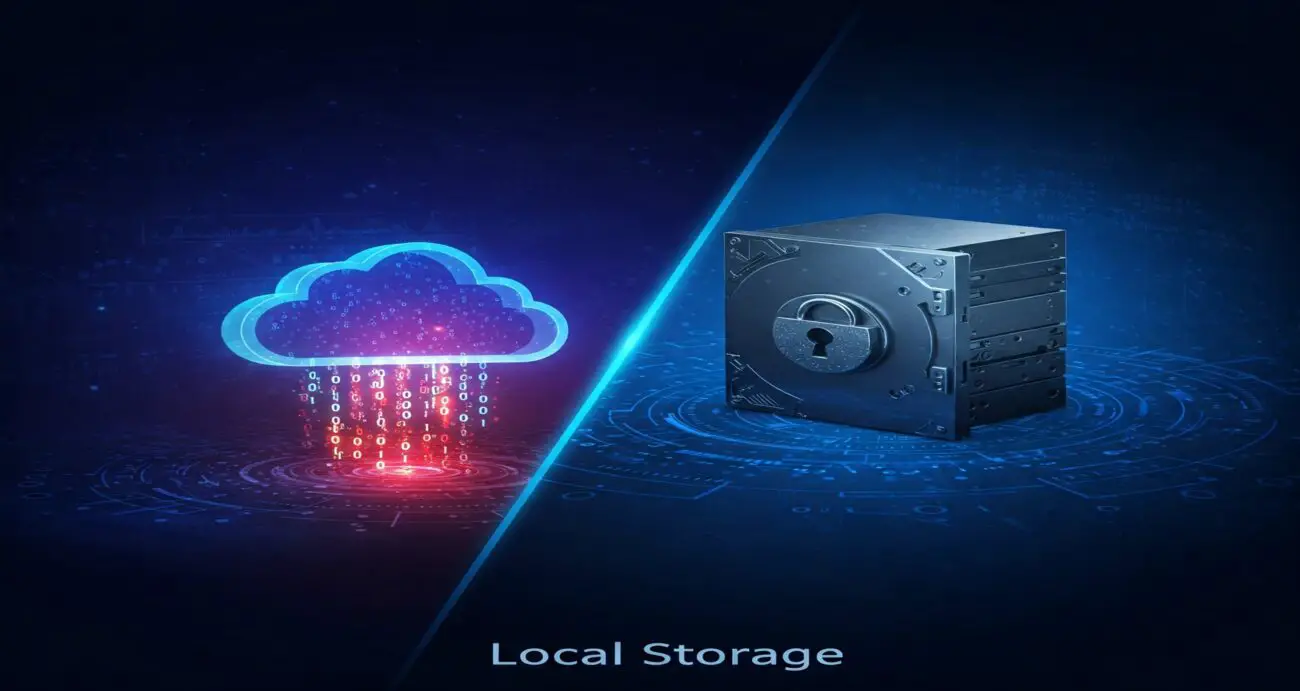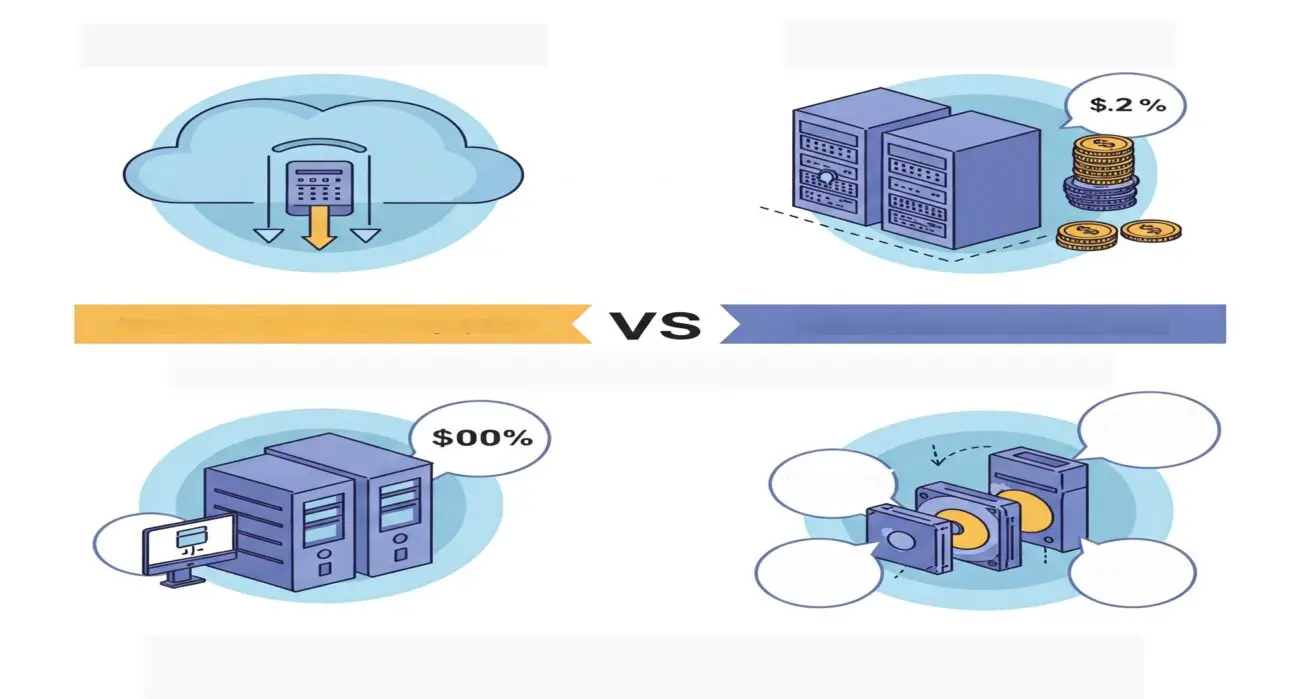Blog
Cloud Computing vs. Local Storage: Which is Better?

In today's digital era, data storage plays a crucial role in both personal and professional settings. With the growing dependence on technology, the debate between cloud computing and local storage has become more relevant than ever. Both options have their advantages and disadvantages, making it essential to choose the right one based on your needs. Let's break down the key differences to help you decide which is the better choice for you.
Understanding Cloud Computing and Local Storage
Cloud Computing
Cloud computing refers to storing data on remote servers maintained by third-party providers such as Google Drive, Dropbox, or Amazon Web Services (AWS). This data is accessible via the internet from anywhere in the world.
Local Storage
Local storage involves saving files and data on physical devices such as hard drives, SSDs, or USB drives. This data is stored locally on a personal computer, external drive, or company server.

Comparison: Cloud Computing vs. Local Storage
1. Accessibility
- Cloud Computing: Data is accessible from anywhere with an internet connection.
- Local Storage: Data is only available on the device where it is stored unless transferred manually.
Winner: Cloud Computing – Ideal for remote work and accessibility on multiple devices.

2. Security
- Cloud Computing: Providers offer advanced security features, encryption, and backups, but data is vulnerable to cyber threats and hacking.
- Local Storage: Provides better control over data security, but risks data loss due to hardware failure or physical theft.
Winner: Local Storage – More secure for sensitive data if properly managed.

3. Cost
- Cloud Computing: Usually subscription-based (monthly or yearly fees). Costs increase with more storage.
- Local Storage: One-time payment for storage devices but may require upgrades and maintenance.
Winner: Local Storage – More cost-effective in the long run.

4. Reliability & Backup
- Cloud Computing: Offers automatic backups, but data retrieval depends on internet connectivity.
- Local Storage: Requires manual backups and can be lost if the hardware fails.
Winner: Cloud Computing – Ensures data is backed up without manual effort.

5. Speed & Performance
- Cloud Computing: Dependent on internet speed; large files may take time to upload/download.
- Local Storage: Offers faster read/write speeds with no internet dependency.
Winner: Local Storage – Faster data access, especially for large files.

Which One Should You Choose?
The choice between cloud computing and local storage depends on your specific needs:
- For Businesses & Remote Work → Cloud computing is preferable due to accessibility and automatic backups.
- For Personal Use & High-Security Needs → Local storage is better if you require more control over your data and security.
- Hybrid Approach → Many users and companies use a combination of both to balance convenience and security.
Final Verdict
There is no definitive “best” choice—both cloud computing and local storage have their strengths and weaknesses. For convenience and accessibility, cloud computing wins. For security and speed, local storage takes the lead. Evaluating your storage needs will help determine the right solution for you.
What’s Your Preference?
Do you prefer the flexibility of cloud computing, or do you trust local storage more? Share your thoughts in the comments below!
